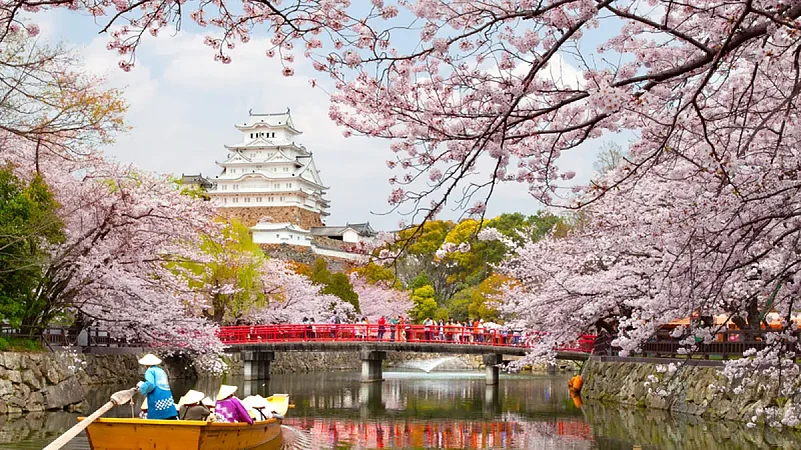A vibrant pink and white bloom carpets Japan every year, heralding spring in the most magical way possible. Cherry blossoms are Japan’s cynosure; every year, millions throng to the country to witness these sakura plants.
This year, however, the sight of cherry blossoms is a cause for concern. A new study from the Met Office in the U.K. has revealed that these flowers have blossomed almost 11 days early; the city of Kyoto witnessed cherry blossoms reach their peak bloom on April 1st. In 2021, cherry blossoms had made their annual appearance on March 26th, the earliest date in 1,200 years.

While the sight of cherry blossoms is a stunning spectacle, their appearance now is a warning bell for environmentalists regarding the threat of climate crisis that looms large over the planet. Led by Nikolaos Christidis, the study, which has been published in Environmental Research Letters, states that the flowering period alterations for cherry blossoms coincide with changing temperatures.
Rising industrial emissions and global temperatures, especially in urban areas have led to a disturbance in the natural flowering season of many plants. An increase in temperatures since the late 20th century, which continues in the 21st century, makes these events more likely in the future. As per a CNN report on a study, climate change is making plants across the British Isles flower, on average, a month earlier than they used to, a new study shows. Closer home, in India, 2021 was marked by an erratic monsoon, with extreme localised rainfall events, a dry month of August and an unusually wet September, IndiaSpend reported.

Indian summers were also marked with record-breaking temperatures; several weather stations broke their temperature records in April 2022. Additionally, the United Kingdom's national meteorological service published a study on the heatwave that northern India and Pakistan experienced during the months of April and May, which asserted that “ human influence has increased the likelihood of extreme April-May temperature anomalies,” and abnormally high temperatures will become common in the coming years.
The same is predicted for Japan’s cherry blossoms; they may continue to flower earlier than usual till the time their early arrival may not even be considered extreme. “Kyoto's cherry flowering season arrives on average 1–2 weeks earlier because of anthropogenic climate change, with a projected shift of an extra week by the end of the century under a medium emissions scenario. As a result, extremely early flowering like in year 2021 becomes increasingly common in a warming climate and may occur every few years by 2100, when it will no longer be classified as extreme,” says a quote from the study.
Climate Change is one of the biggest global concerns of the 21st century and the impact of a warming-induced ecological shift threatens to disrupt several ecosystems. Our best hope is to, on an immediate basis, work towards phasing out fossil fuels and reducing toxic emissions and pray that our impact on this environment is not irreversible.


























